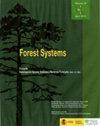阿根廷巴塔哥尼亚安第斯森林食用菌的地方和可持续发展:综述
IF 0.7
4区 农林科学
Q3 FORESTRY
引用次数: 0
摘要
野生真菌是巴塔哥尼亚安第斯山脉原生和种植的森林环境和草原中最具特色和多样性的非木材森林产品之一。通过技术和科学平台“Patagonia Fungi,trails and tastes®”,我们致力于推广真菌旅游和真菌美食,将其作为可持续的身份和包容性的经济和教育活动,促进当地发展,利用卓越的地区旅游形象。我们还致力于开发功能性食品,促进食用菌和药用菌的种植。这项研究的主要目的是定义新的可食用物种,并对其可持续利用进行评估,包括:对其结果生态位的环境特征和提高其生产力的“真菌造林”管理;记录和分析祖先的用途及其变化过程;营养和营养成分的测定;不同属的分子遗传多样性研究;野生物种驯化议定书;从巴塔哥尼亚安第斯山脉的可用残留物中评估和选择用于培养的木质纤维素基质;与当地美食营销和使用相关的经济方面;采后保鲜技术评价。大多数相关行动包括设计和实施真菌学旅游路线,推广真菌学;可持续收获和食品安全做法议定书的机构间管理;将21个新物种纳入《阿根廷食品法典》。我们还通过一个产卵生产实验室,通过从家庭到生产规模的课程和对生产者的援助,促进食用菌和药用真菌的种植,从而实现粮食主权。本文章由计算机程序翻译,如有差异,请以英文原文为准。
Edible fungi for local and sustainable development in the Patagonian Andes forests of Argentina: A review
Wild fungi are one of the most characteristic and diverse non-wood forest products from native and planted forest environments and grasslands in the Patagonian Andes. Through the technological and scientific platform “Patagonia Fungi, trails and tastes®”, we work to promote mycotourism and mycogastronomy as sustainable identity and inclusive economic and educational activities that promote local development, taking advantage of the outstanding regional tourist profile. We also work on the development of functional foods and promote the cultivation of edible and medicinal fungi. The main objectives of this research were to define novel edible species and evaluate them for sustainable uses, including: environmental characterizations of their fruiting niches and ‘mycosilvicultural’ managements to increase their productivity; documentation and analysis of the ancestral uses and their processes of change; determination of the nutritional and nutraceutical profiles; studies of molecular genetic diversity of various genera; protocols for the domestication of wild species; evaluation and selection of lignocellulosic substrates for cultivation from available residues in Patagonian Andes; economic aspects related to the marketing and use in local gastronomy; evaluation of postharvest preservation techniques. Most relevant actions include the design and implementation of mycotourism trails, the promotion of an identity mycogastronomy; the inter-institutional management of protocols for sustainable harvesting and food safety practices; the incorporation of 21 new species in the Argentinean Food Code. We also work for food sovereignty through a spawn production laboratory fostering edible and medicinal fungi cultivation through courses and assistance to producers from family to productive scales.
求助全文
通过发布文献求助,成功后即可免费获取论文全文。
去求助
来源期刊

Forest Systems
FORESTRY-
CiteScore
1.40
自引率
14.30%
发文量
30
审稿时长
6-12 weeks
期刊介绍:
Forest Systems is an international peer-reviewed journal. The main aim of Forest Systems is to integrate multidisciplinary research with forest management in complex systems with different social and ecological background
 求助内容:
求助内容: 应助结果提醒方式:
应助结果提醒方式:


